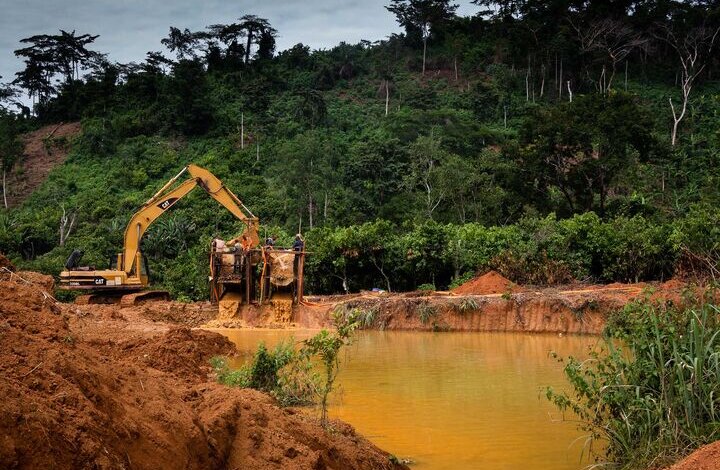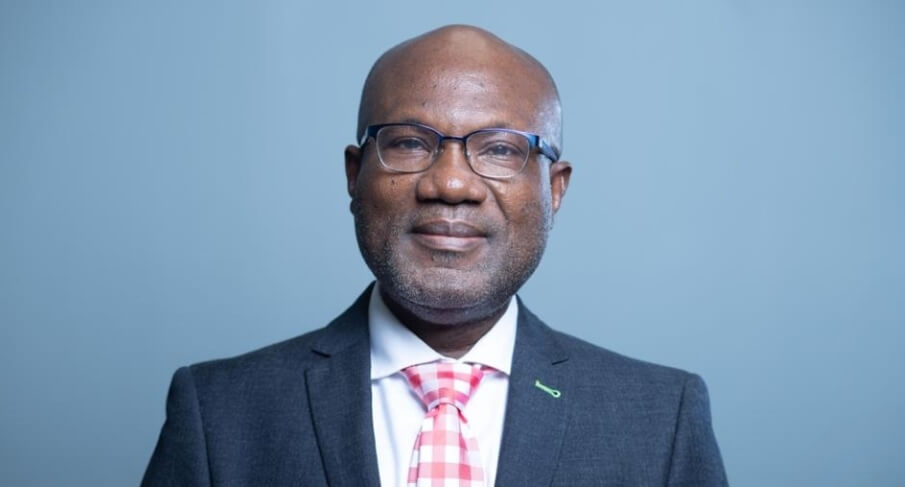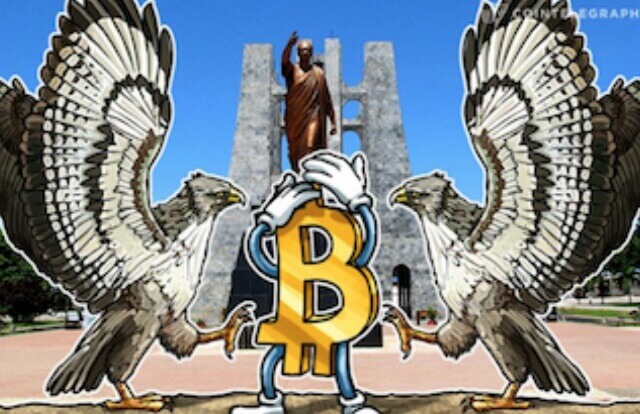
Illegal mining, often referred to as ‘galamsey’ in Ghana, has become a significant environmental and social issue in Ghana. The unregulated extraction of minerals not only leads to serious water pollution, deforestation, and land degradation but also poses health risks to communities.
Consequently, it is crucial for the government of Ghana to implement effective mechanisms that will put an end to illegal mining and safeguard the country’s water bodies and forest reserves.
This article by Papa Kwasi Dentsil-Koomson explores various mechanisms the government can utilize, including their implementation and associated initiatives, to tackle this pressing concern.
Strengthening legal frameworks and enforcement
One of the first steps the government should take is to review and strengthen existing mining laws and regulations to address deficiencies that enable illegal mining activities. This includes imposing stricter penalties on offenders, enhancing monitoring systems, and improving traceability mechanisms for illegal mining products.
With an updated legal framework, the government can ensure a comprehensive and efficient approach to dealing with illegal mining. To effectively enforce these laws, the government needs to invest in training and equipping law enforcement agencies such as the police, environmental agencies, and forestry officials.
These agencies must be given the tools, resources, and capacity to carry out surveillance, identification, and prosecution of illegal miners. By ensuring law enforcement agencies have the necessary expertise, equipment, and technology, the government can significantly curb illegal mining activities.
Promoting community engagement and awareness
Engaging local communities affected by illegal mining is crucial for effective implementation. The government should conduct extensive awareness campaigns to educate community members about the environmental and socio-economic impacts of illegal mining.
Community participation can be encouraged through dialogue sessions, town hall meetings, and outreach programs. Additionally, the government needs to establish channels for community members to report illegal mining activities.
Protecting whistleblowers is essential to foster a culture of vigilance and cooperation, as they play a crucial role in detecting and preventing illegal mining operations. The government could provide platforms for anonymous reporting, ensuring the protection and safety of those who wish to report illegal activities.
Development of sustainable livelihood alternatives
Many individuals engage in illegal mining due to lack of alternative means of livelihood. Hence, the government should focus on developing sustainable livelihood alternatives for affected communities, particularly those living in mining areas.
This may involve investment in agriculture, supporting cooperatives and small-scale industries, and promoting eco-tourism initiatives. To ensure the success of these alternative livelihood programs, the government can collaborate with relevant organizations, both local and international.
This collaboration will enable the sharing of knowledge, expertise, and resources necessary for the development and implementation of sustainable livelihood initiatives.
Rehabilitation and restoration
Rehabilitation and restoration efforts should be a priority to repair the damage caused by illegal mining activities. The government must allocate resources to reforest degraded areas, implement erosion control measures, and restore damaged water bodies.
Deploying experts in the field of restoration ecology can help develop effective strategies for reviving the environmental health of mining-affected regions.
The government should partner with international organizations and leverage their expertise and funding to accelerate rehabilitation and restoration efforts. Collaborative initiatives can help provide technical assistance, financial aid, and knowledge transfer, ensuring a holistic approach to restoring impacted areas.
Mining certification and traceability
Implementing mining certification and traceability systems can play a pivotal role in curbing illegal mining. The government should promote responsible mining practices through the certification of legally extracted minerals.
Certificates should be issued to miners who adhere to environmental standards, ensuring transparency in the supply chain. Moreover, traceability mechanisms can be established to track and verify the origin of minerals, thereby reducing the market demand for illegal mining products.
Collaborative efforts with international actors, such as the Kimberly Process Certification Scheme for diamonds, can serve as valuable models for implementing effective traceability systems.
International collaboration and information sharing
Illegal mining often transcends national boundaries, requiring extensive international collaboration. The government should forge partnerships with neighboring countries, regional bodies, and international organizations to combat cross-border illegal mining activities.
Information sharing on illegal mining syndicates can enable collaborative investigations and arrest operations, making it difficult for offenders to operate internationally. Additionally, the government should seek assistance from global initiatives focused on combatting illegal mining, such as the Extractive Industries Transparency Initiative (EITI) and the United Nations’ programs on sustainable mining.
These partnerships offer access to technical assistance, capacity building, and financial support needed to combat illegal mining effectively.
It is essential for the government to prioritize the preservation of Ghana’s water bodies and forest reserves, as they are vital resources for not only ecosystem stability but also for the well-being of communities and future generations.
By employing these mechanisms and initiatives, Ghana can set a positive example globally, demonstrating the country’s commitment to sustainable development and responsible resource management.
Author
Papa Kwasi Dentsil-Koomson (MCS, CMSC, BC, BF) is the CEO / MD of Mineserve Engineering Ghana Limited (MEGL) and Managing Member of Great Nevada Oil & Gas Exploration LLC, USA. He is also a certified Private Investigator, Counter Terrorism & International Relation Professional.
His expertise includes engineering & construction project management, oil & gas industry operations, markets & drilling, risk analysis and economic crime investigations with over 15 years of experience.

Disclaimer: The views and opinions expressed in articles and content by our contributors are those of their’s and do not necessarily reflect the official policy or position of our publication. We make every effort to ensure that the information provided is accurate and up-to-date, while holding contributing authors solely responsible for their contributions.





